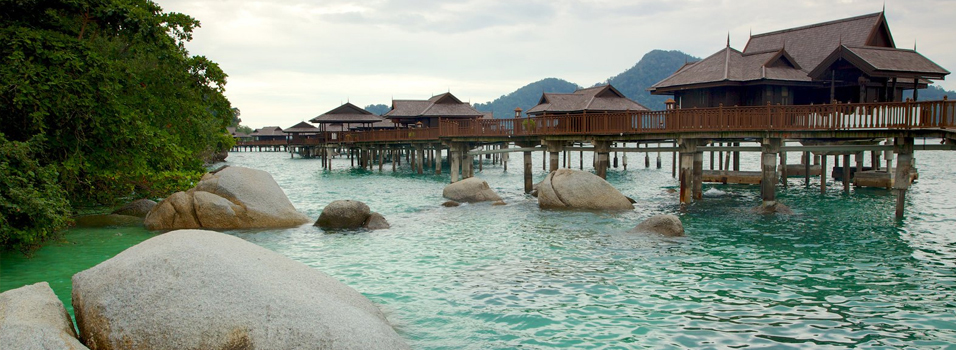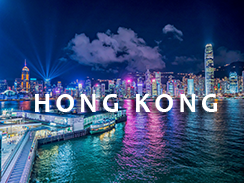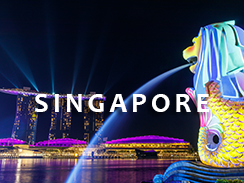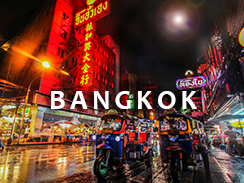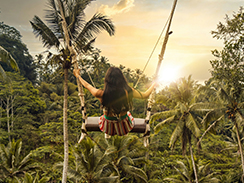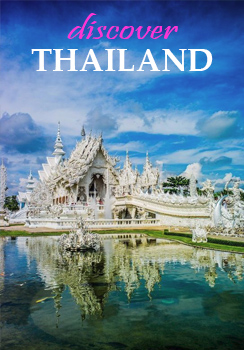Pangkor Island
Pangkor Island is a charming getaway, offering a peaceful, family-friendly atmosphere with a mix of natural beauty and cultural history. Here's a deeper look at what makes the island special:
Overview of Pangkor Island:
- Location: Situated off the west coast of Peninsular Malaysia, between Kuala Lumpur and Penang, Pangkor Island is easily accessible via a ferry ride from Lumut (on the mainland).
- Name Origin: The name "Pangkor" is derived from the Thai term “pang koh,” meaning "beautiful island," which is reflected in its serene beaches and emerald waters.
- Size & Layout: The island is small, about one-fifth the size of Penang, and is divided into two main areas: the industrial east coast and the more relaxed west coast, which is home to the main beaches and accommodations.
Historical Significance:
- The Treaty of 1874: Pangkor Island holds historical significance as the site where the British and the Sultan of Perak signed the Pangkor Treaty in 1874. The treaty formalized British control over the tin-rich state of Perak, playing a pivotal role in the formation of the Federated Malay States.
- Pirate and Merchant Haven: Historically, Pangkor served as a safe haven for fishermen, merchants, and even pirates. Its coastal location made it an important maritime center during colonial times.
Main Attractions & Activities:
1. Beaches:
- Pasir Bogak: A long, sandy beach popular for swimming and relaxing. This is one of the most well-developed beaches on the west coast, offering a range of accommodations and eateries.
- Nipah Beach: Known for its quieter, more serene atmosphere, this beach is perfect for those looking to unwind in a peaceful setting. The clear waters make it ideal for swimming and snorkeling.
- Coral Beach: A more secluded option, ideal for travelers seeking a less crowded spot to enjoy the stunning scenery and tranquil environment.
- Private Pulau Pangkor Laut: A luxury resort island off the southwest coast, offering an exclusive escape with upscale facilities, perfect for those looking for a more refined vacation experience.
2. Historical Sites:
- Pangkor Town: The main town on the east coast offers a more industrial setting with fishing villages and boat-building yards. It’s a stark contrast to the tranquility of the west coast but provides a glimpse into the traditional way of life.
- Dutch Fort (Fort Kota Belanda): A historical remnant of the Dutch colonial era, this fort was built in the 17th century to defend the area from pirates. It's located near the town of Teluk Dalam.
- Makam Mahsuri: Though not as famous as in Langkawi, this is another cultural site that commemorates the legend of Mahsuri, a story that links to the region's rich heritage.
3. Nature & Wildlife:
- Forests & Reserves: Pangkor is home to several forest reserves managed by the Forestry Department. These forests are rich in flora and fauna, offering a natural balance to the developed areas of the island. Though the forest trails are not extensively maintained, the jungles remain picturesque and peaceful, perfect for nature lovers.
- Wildlife: While exploring the island’s forests, you may spot various bird species, monkeys, and other wildlife. Birdwatching is a popular activity here.
4. Water Activities:
- Snorkeling & Diving: The crystal-clear waters around Pangkor are perfect for snorkeling and diving, with vibrant coral reefs and marine life to explore.
- Fishing: As Pangkor’s economy has long been based on fishing, it’s no surprise that the island offers a number of fishing-related activities, including boat trips where visitors can try their hand at local fishing techniques.
- Boat Tours: Explore Pangkor’s coastline on a boat, visiting nearby islands like Pulau Giam and Pulau Mentagor.
Accommodation:
Pangkor offers a wide range of accommodation options, from budget guesthouses to mid-range beach resorts. Some of the more popular beach areas like Pasir Bogak and Nipah offer beachfront hotels with affordable rates. The rates are often split into:
- Weekday rates (Sunday to Thursday)
- Weekend rates (Friday and Saturday)
- Peak rates (during public holidays) It's advisable to book in advance if you're planning to visit during weekends or public holidays, especially around Chinese New Year and school holidays.
Accommodation Tips:
- Family-friendly: Most accommodations cater to families, making it a great destination for a family vacation. However, check ahead if you want to avoid resorts that may host large functions like karaoke parties.
- Conference Rooms: Some resorts with conference facilities may host events that could involve loud music or activities. If peace and quiet are a priority, be sure to inquire about planned events before booking.
Local Economy:
- Fishing & Boat Building: The local economy still relies heavily on the sea, with boat-building and fishing as key industries. These provide a glimpse into Pangkor’s heritage and are an integral part of the island’s identity.
- Cultural Diversity: The island’s population consists of various ethnic groups, with Malays, Chinese, and Indians living harmoniously. This cultural diversity is reflected in the island's festivals, food, and traditions.
Conclusion:
Pangkor Island is a tranquil and family-friendly destination with a mix of natural beauty, cultural history, and local charm. Whether you're looking for a beach retreat, nature hikes, or a glimpse into Malaysia’s maritime heritage, Pangkor offers a little bit of everything. It's a great spot to unwind, explore, and soak in the local culture.

